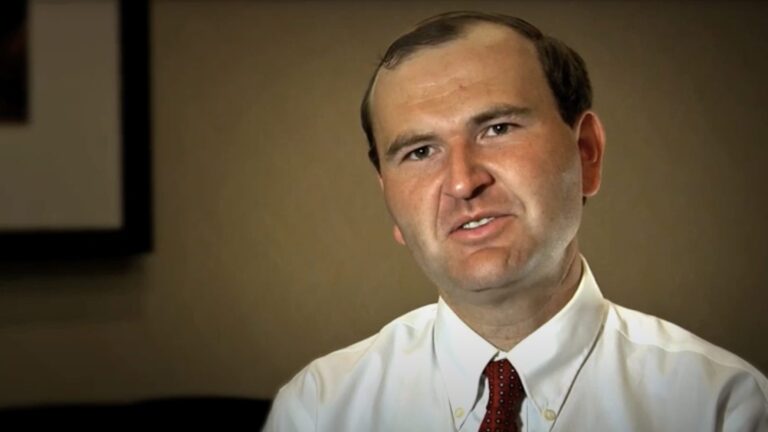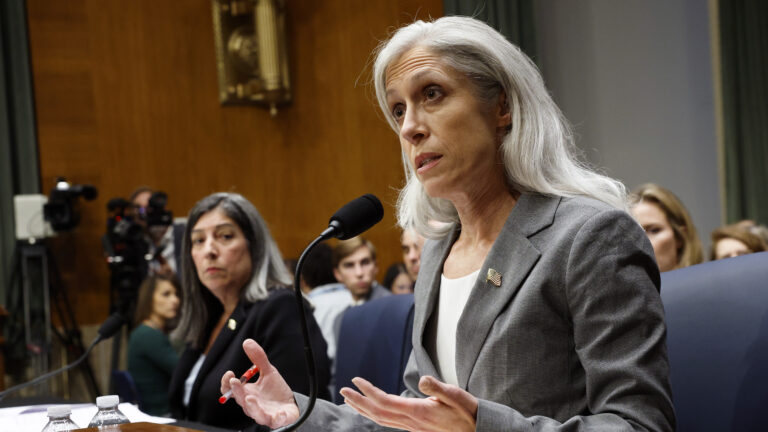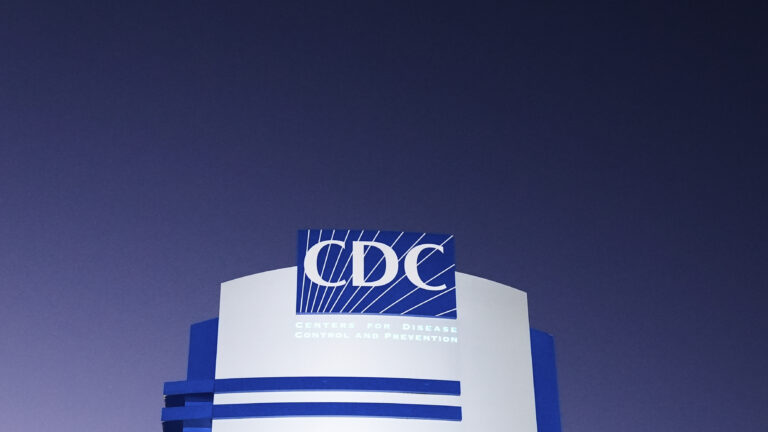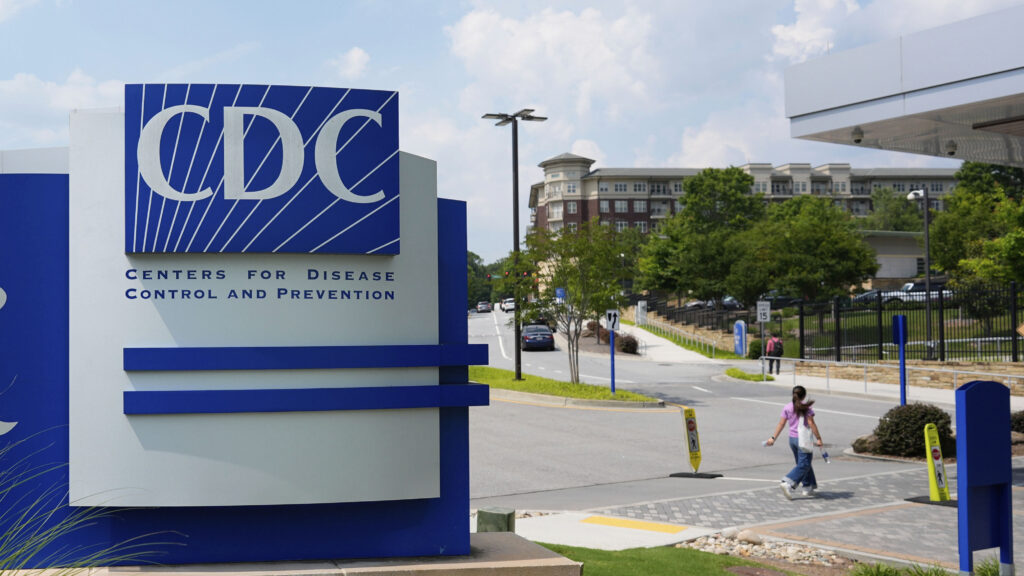The chair of a key vaccine committee that advises the Centers for Disease Control and Prevention struck a confrontational tone Thursday, challenging nine former heads of the CDC to “a live public debate with me concerning vaccines.”
If they refuse, he said, don’t trust them.
Martin Kulldorff, a statistician and former Harvard professor who chairs the Advisory Committee on Immunization Practices, made the remarks at the start of a two-day meeting where members will consider recommendations related to Covid-19 vaccines and shots on the pediatric vaccine schedule, including hepatitis B. He leveled similar criticism against the American Academy of Pediatrics, the recently fired director of the CDC, and several former CDC officials, implying they are unwilling to engage in open scientific debate.
“We are currently experiencing heated controversies about vaccines, and a key question is: Who can you trust?” Kulldorff said.
“Here is my advice. When there are different scientific views, only trust scientists who are willing to engage with and publicly debate the scientists with other views,” he said. “With such debates, you can weigh and determine the scientific reasoning by each side, but without it, you cannot properly judge their arguments.”

HHS abruptly cancels CDC meeting with RFK Jr., anti-vaccine activist as scrutiny mounts
Kulldorff noted that the AAP, which has begun to issue its own vaccine recommendations in a split from the federal government, declined to participate in the ACIP meeting, as the organization has in the past. He also said the AAP had declined his invitation to a public debate.
AAP’s CEO Mark Del Monte said the current panel “imperils children’s health” and said ACIP was once “the venue for rigorous debate rooted in sound science that led to quality recommendations to benefit the health of all Americans.”
“Rather than firing experts at ACIP and CDC and engaging in political stunts, it’s time to get back to prioritizing children’s health. That’s where our focus is. That’s where it will remain,” he added.
In his remarks, Kulldorff directly calls out former permanent and acting CDC directors Richard Besser, Mandy Cohen, William Foege, Tom Frieden, Jeffrey Koplan, William Roper, David Satcher, Anne Schuchat, and Rochelle Walensky, who criticized Health and Human Services Secretary Robert F. Kennedy Jr.’s vaccine policies in a New York Times opinion piece. “If they are unwilling to engage in an open and honest debate with the chair of a committee that they are so severely criticizing, then I advise that you should not trust them,” Kulldorff said.
In a statement, Besser dismissed Kulldorff’s comments as “political theater.”
“Today’s ACIP, however, is an alarming departure from that legacy. Under Secretary Kennedy’s direction, several committee members now reflect his anti-vaccine ideology. CDC scientists have been blocked from informing or reviewing the committee’s work. Outside experts have been excluded. Recommendations that physicians and families depend on are no longer reliable,” he said.
“If the committee continues down this path, the health repercussions for our nation will be severe,” he added.
Frieden said in a statement he was waiting to see how ACIP acts this week.
“A longstanding, widely disseminated, core value of the CDC — in fact, enshrined in the CDC Pledge to the American People — has been commitment to ‘base all decisions on the best available data, openly and objectively derived.’ Whether the current members of the ACIP meet that standard remains to be seen,” he said in a statement.

3 key takeaways from the Senate hearing on CDC director’s firing and RFK Jr.’s vaccine agenda
Kulldorff’s comments come one day after former CDC Director Susan Monarez and former CDC Chief Medical Officer Debra Houry told members of Congress that Kennedy had pressured Monarez to approve changes Kennedy wants to make to the childhood vaccination schedule. Monarez and Houry also detailed how Kennedy expanded the roles of political appointees, and pushed ideas without scientific backing.
The meetings on Thursday and Friday are expected to culminate in votes on recommendations as to whether children under the age of 4 should receive the combined measles, mumps, rubella, and varicella vaccine or separate vaccines for each disease. The committee will also vote on whether pregnant women should be tested for hepatitis B and, if negative, whether the first dose of the hepatitis B vaccine should be withheld until an infant is a month old, unless the parent and physician decide otherwise.
The committee is also expected to vote on recommendations related to the Covid-19 vaccine, though those voting questions are not yet public.
On Thursday, Kulldorff also announced that the panel had convened a working group to reexamine vaccines given during pregnancy, an additional sign of Kennedy’s pledge to leave “no stone unturned” and to revisit approved immunizations. The panel has also convened a working group to reexamine the childhood vaccines schedule.
A committee remade by Kennedy
Kulldorff was named co-chair of the ACIP committee in June, after Kennedy fired every member of the committee and replaced them with handpicked panelists, many of whom had expressed skepticism about the Covid-19 vaccines or immunizations.
Thursday’s meeting included the introduction of five new members, appointed this week, including an infectious disease expert who has pushed back on Covid-19 mandates and another who advocated for unproven Covid treatments.

RFK Jr. adds five members to ACIP, key vaccine panel, days ahead of meeting
Kennedy said that he was removing the previous committee members because they had financial conflicts of interest. An independent analysis found that, in fact, levels of such conflicts had fallen to “historically low levels” before the panel was disbanded.
For years before becoming HHS secretary, Kennedy built a reputation as a vaccine skeptic. He has said, incorrectly, that vaccines are not tested in placebo-controlled trials or “safety tested.” He has also repeatedly claimed a link between the measles vaccine and autism, though peer-reviewed studies have repeatedly found no such relationship.
Paul Offit, a vaccine researcher at Children’s Hospital of Philadelphia who is a former member of ACIP and another advisory committee on vaccines convened by the Food and Drug Administration, said he was disappointed that Kulldorff called for open debate without mentioning decisions made by Kennedy that had been made without debate.
For instance, Offit said, the ACIP committee had been shown data by a former CDC employee, Fiona Havers, that showed children were at risk from hospitalization and death from Covid-19, and that some of those deaths were in children without risk factors. Yet Kennedy had “unilaterally” decided not to recommend the shots for children without risk factors. “He didn’t explain why, he didn’t have a discussion with anyone, and Fiona Havers quit,” Offit said.
Offit also said that at a previous meeting of the current ACIP, where the panel had decided to recommend against any use of the vaccine preservative thimerosal, the panel was presented data from an activist that Offit said was riddled with errors.
“When he talks about wanting to be open-minded and share these decisions based on good science, he doesn’t actually do that in practice,” Offit said of Kulldorff.

